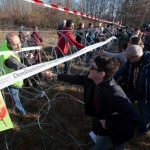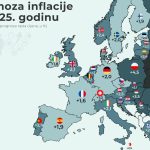ZAGREB, September 15, 2018 – The reuniting of persons who have been granted international protection in Croatia and their families is a complex and long process that requires getting through red tape as well as significant funds, it was said at a round table in Zagreb on Friday.
The most frequent problems in reuniting individuals under international protection with their spouses or underage children concern the translation of personal documents into Croatian in their countries of origin and the acquisition of valid travel documents in war-affected countries.
There are also problems with regard to collecting evidence of kinship, the remoteness of embassies that issue relevant visas and the lack of money, it was said at the event organised by the Jesuit Refugee Service (JRS) nongovernmental organisation.
Speakers at the event included a Syrian family whose father came to Croatia from Germany, was granted asylum and was reunited with his family, a process that took three years.
Since 2009, 15 people – from Egypt, Iraq, Yemen, Syria, Somalia, Turkey and Uzbekistan – have been granted temporary residence in Croatia for the purpose of family reunion, it was said.
The first reunion was registered in 2009 and since then the number has been growing, said Ana Šutalo of the Ministry of the Interior’s Office for Asylum.








